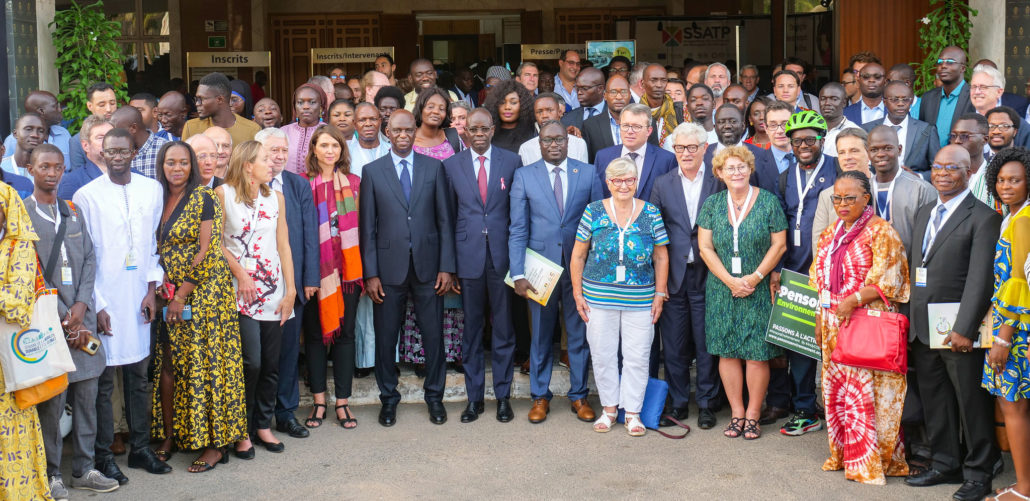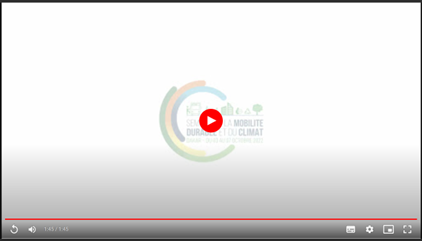From 3 to 7 October 2022, the Sustainable Mobility and Climate Week took place in Dakar www.smdc2022.com.

1500 actors from all over the world met to discuss topics related to urban mobility and climate change in the South. At the end of this week, which enabled more than 50 plenary or thematic sessions to be held, and after consultation with the various partners, the entireCODATU community approved the Dakar Declaration, which was presented the following month in Sharm el-Sheikh at the COP27.
Here are some of the major themes that were debated and that underpin CODATU’s roadmap for the next 10 years, through the Dakar Declaration.
Governance
A cross-cutting issue, addressed in practically all the workshops, governance is defined as all the decisions, rules and practices aimed at ensuring the functioning of a mobility system. It takes into account the issues of financing, global urban planning policies and the management of major projects. In order to identify the main issues concerning the projects presented during the SMDC, a mapping of the actors and an analysis of the existing relationships and power relations was produced. The participants widely shared the idea that mobility should be managed as closely as possible to the territories and citizens, within local authorities.
Gender
On mobility issues, gender has become a new criterion that can no longer be excluded from the discussions. Women must be integrated as users but also as actors in the professional sector. The SMDC made it possible to highlight initiatives that promote these values, such as the Lagos project to train female bus drivers led by LAMATA, or the awareness-raising campaign against violence against women in public transport in Tunis.
Paratransit
Paratransit has become a key means of public transport in many cities in the South. The workshops provided an opportunity to explore the issue of integrating small-scale transport into a sustainable mobility system. Many experiences were exchanged on the management of the regulation of paratransit. For example, the AFTU project led by the CETUD in Dakar, proposes that paratransit drivers become conventional bus drivers. Also the project of the city of Douala, which aims to implement a regulation and a policy of harmonisation with other means of urban transport.
Data and digital tools
Data (from collection to use, processing and updating) and digital tools have been regularly presented as a means of accelerating the decarbonisation of mobility in Africa and elsewhere. Their processing must be transparent, reliable, inclusive and not exclude populations still far from this type of solution. Digital tools are a relevant solution to the continent’s challenges, offering alternative payment solutions and thus supporting the modal shift towards collective and decarbonised modes. They can also enable the development of multimodal solutions, which can only be achieved with up-to-date data on networks and users.
Electromobility and alternative energies
Alternative energies are a major challenge for the ecological transition and the decarbonisation of mobility. This issue was prominent in the discussions between the various stakeholders at the SMDC. Although it holds out hope for more environmentally friendly modes of transport, electromobility is not simply a mobility policy issue. The relevance of its development tends to be part of a more global energy strategy, in territories whose precariousness is no longer in question.

Watch the SMDC2022 movie
